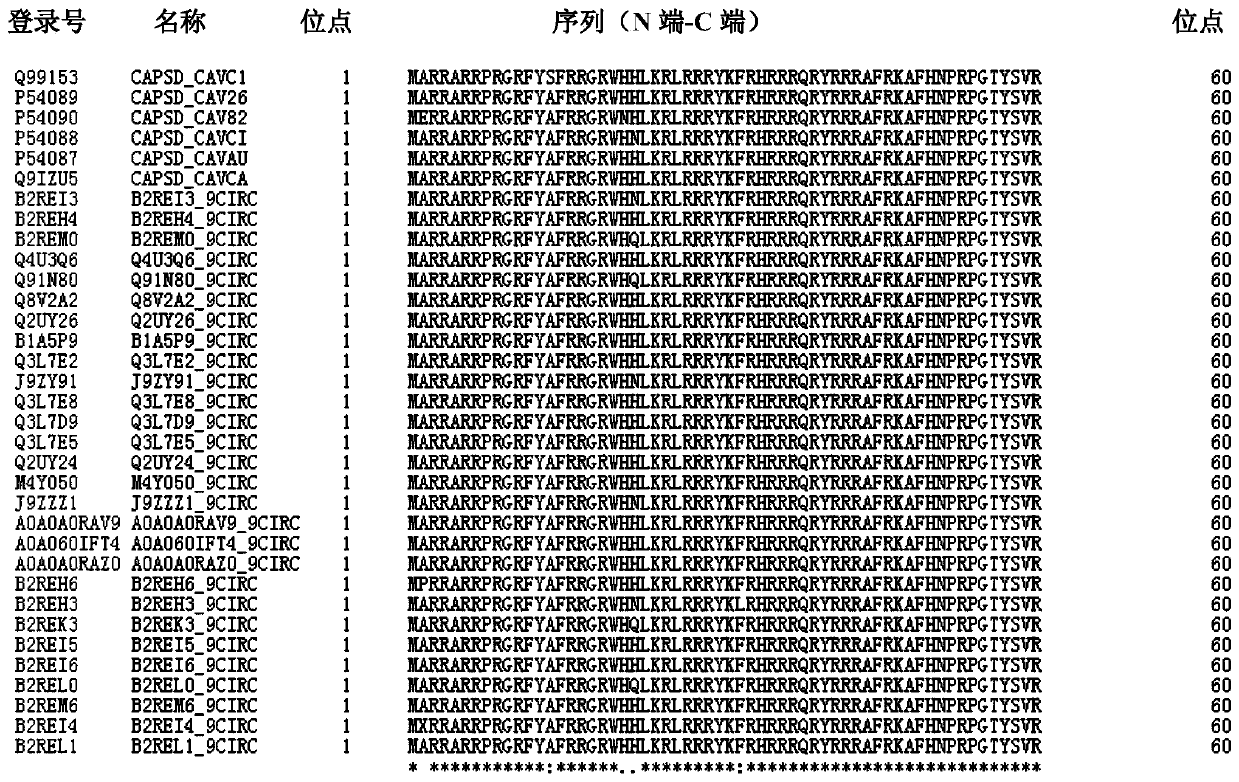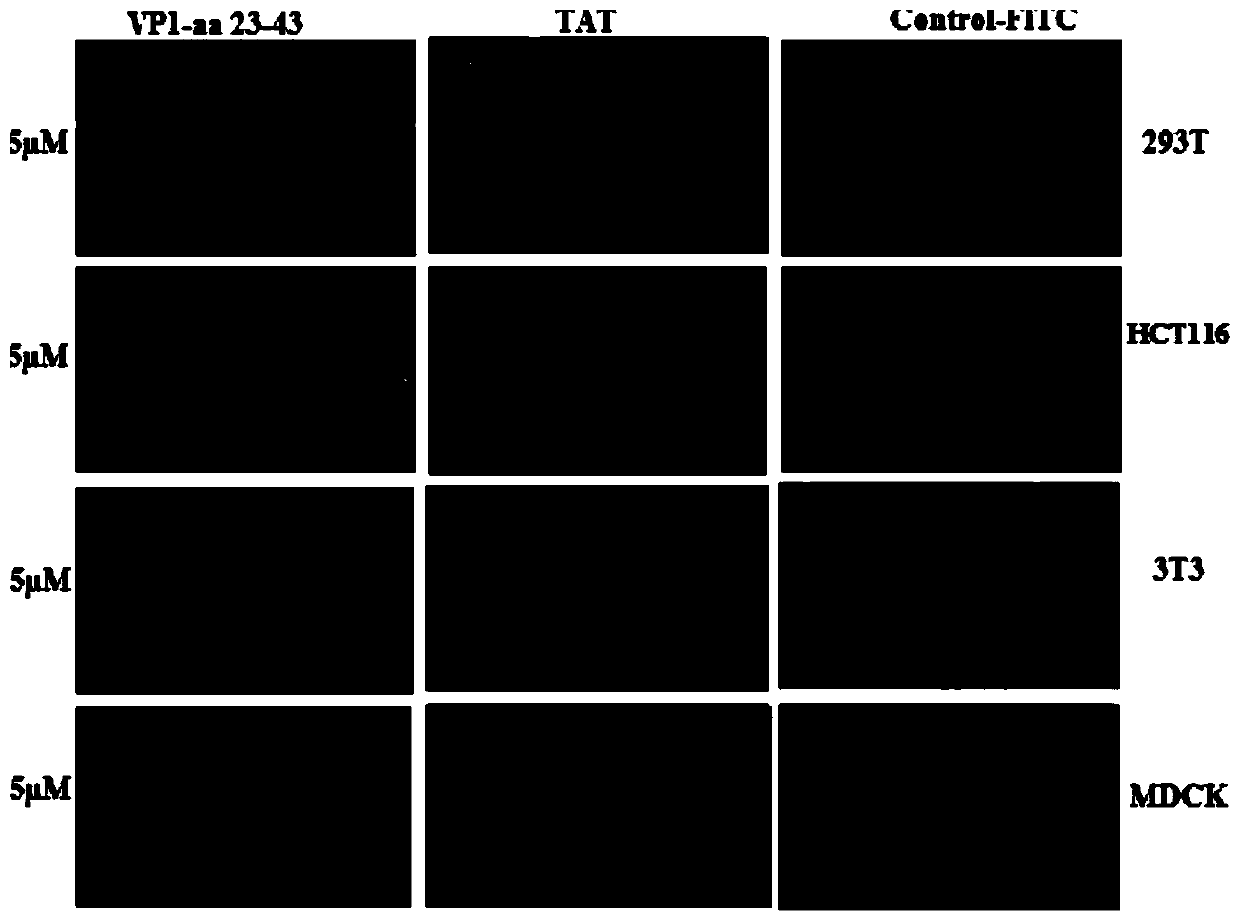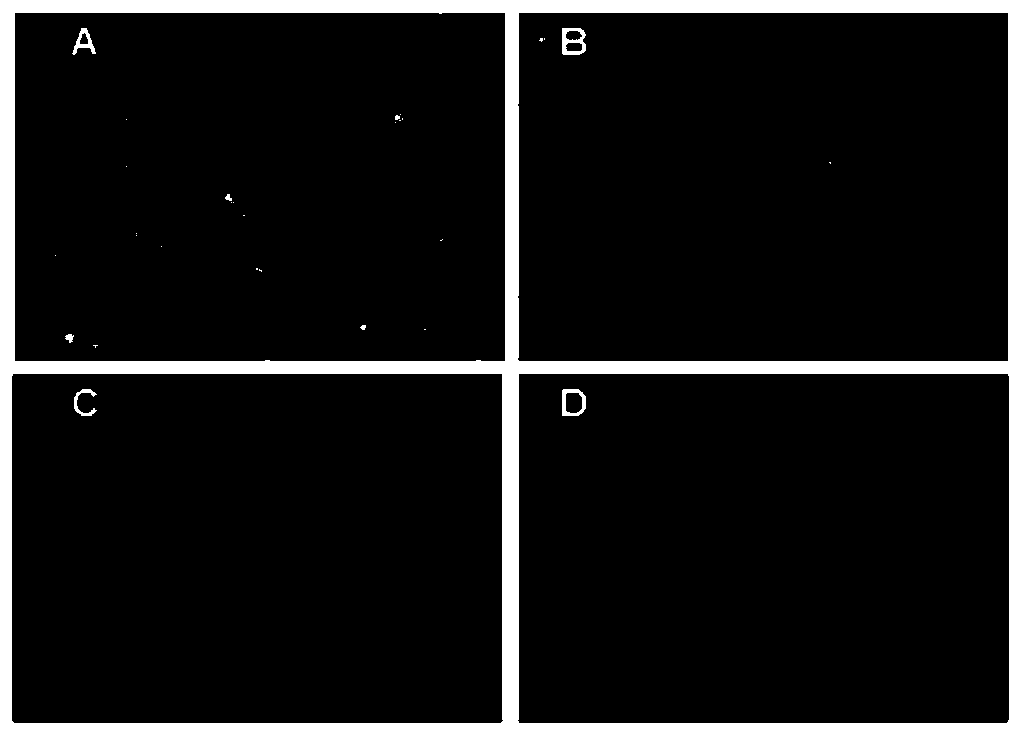Application of vp1-aa 23-43 polypeptide derived from chicken infectious anemia virus as high-efficiency cell-penetrating peptide
A chicken infectious anemia and membrane-penetrating peptide technology, applied in the field of high-efficiency cell-penetrating peptides, can solve the problem of weakening the membrane-penetrating ability
- Summary
- Abstract
- Description
- Claims
- Application Information
AI Technical Summary
Problems solved by technology
Method used
Image
Examples
Embodiment Construction
[0026] In order to better understand the content of the present invention, the following embodiments illustrate the preparation and identification process of a high-efficiency cell-penetrating peptide derived from the chicken infectious anemia virus VP1-aa 23-43 polypeptide in conjunction with the accompanying drawings.
[0027] Implementation process
[0028] (1) Preparation and synthesis of short N-terminal peptide (aa 23-43) of chicken infectious anemia virus VP1
[0029] Using the online database UniProt (http: / / www.uniprot.org / uniprot / ), the N-terminus (aa 1-60) of the VP1 sequence from different CAV reference strains was compared, analyzed and marked in the sequence Positively charged polar amino acids (such as figure 1 ). According to the annotation information of the Family&Domains module, the N-terminal (aa1-60) sequence of the CAV VP1 sequence was characterized. It was found that the N-terminus of VP1 was highly conserved. According to the UniProt database inform...
PUM
 Login to View More
Login to View More Abstract
Description
Claims
Application Information
 Login to View More
Login to View More - R&D
- Intellectual Property
- Life Sciences
- Materials
- Tech Scout
- Unparalleled Data Quality
- Higher Quality Content
- 60% Fewer Hallucinations
Browse by: Latest US Patents, China's latest patents, Technical Efficacy Thesaurus, Application Domain, Technology Topic, Popular Technical Reports.
© 2025 PatSnap. All rights reserved.Legal|Privacy policy|Modern Slavery Act Transparency Statement|Sitemap|About US| Contact US: help@patsnap.com



